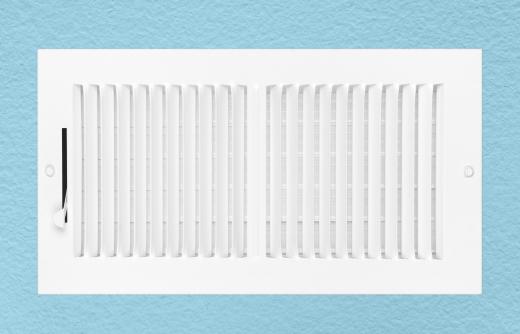A duct filter is a type of air filtering device that is commonly used with central heating and cooling systems in a residence or commercial building. The purpose of the duct filter is to remove various types of contaminants as air flows through the body of the filter. Filters of this type are often located in the duct work at a point that is known as the return, or the point where the duct equipment drives air in and out of the duct work as part of the heating and cooling process. Most types of air or duct filters must be changed periodically, although some designs can be cleaned and used for longer periods of time.
One of the benefits of the duct filter it that the device is capable of capturing various types of air contaminants found in most homes and various types of public buildings. Even as the other components in the HVAC system are working to adjust the flow of warm or cold air into the interior space of the home, the filter is positioned so that air passes through the porous body of the filter. As the air passes through the filtering materials, which may include charcoal, hog hair and wire mesh, contaminants such as dust, pet dander, and pollen are captured and collected on the surface of the duct filter.

People who suffer from allergies find that using a high quality duct filter recommended by system manufacturers will go a long way toward easing the discomfort of exposure to high amounts of various irritants. Since the filter works with both hot and cold air, the allergy sufferer can enjoy relative comfort indoors any time of the year. While basic filters often work well with minor allergies, there are also heavy-duty filter designs that are more efficient and capable of capturing greater quantities of airborne contaminants.

The installation of a duct filter is typically a simple process. With many air conditioning systems, opening the cover to the return section of the duct work makes it possible to slide the used filter out of position, then insert a fresh filter. Some manufacturers require that a custom designed duct filter be used with their systems, while other systems can make use of standard filters found at hardware stores and other outlets where duct equipment and supplies are sold. A few filter brands are constructed to allow homeowners to rinse the contaminants from the body of the device, then reuse the filter repeatedly. More often, filters are intended for one-time use, and are replaced several times a year, based on manufacturer recommendations.

